A rtificial Intelligence (AI) is one of the most transformative technologies of our time. However, it’s also surrounded by myths and misconceptions that can shape public perception and hinder its potential. Let’s bust the top 10 shocking myths about AI that you might still believe!
Myth 1: AI Will Soon Replace All Human Jobs
A common fear among many is that AI will render human jobs obsolete. However, the truth is far more nuanced. AI aims to automate repetitive tasks, allowing humans to focus on creativity, problem-solving, and interpersonal connections. For instance, AI in healthcare assists doctors with diagnostics but doesn’t replace them.
Myth 2: Myth About AI Can Think Like Humans
One of the Myths About AI is that it thinks like us. In reality, AI processes data, recognizes patterns, and makes predictions—but it lacks emotions, intuition, and self-awareness. Machine learning allows AI to mimic human-like actions, but it’s not true cognition.
Myth 3: AI Is Always Objective
AI is only as impartial as the data it learns from. If training data contains biases, the AI will reflect them, making its decisions flawed. This myth can mislead people into overtrusting AI systems, underscoring the need for ethical oversight.
Myth 4: AI Can Create Without Human Input
It may seem like AI creates art or music autonomously, but all AI systems depend on human-generated data and training. This myth gives AI more credit than it deserves. In truth, AI augments creativity but cannot function without guidance.
Myth 5: About AI Knows Everything
This myth overstates AI’s capabilities. AI relies on datasets, and its knowledge is only as good as the data provided. When faced with incomplete or biased data, AI systems fail to deliver accurate results.
Myth 6: AI Is Dangerous and Will Take Over the World
Science fiction has painted AI as a potential threat to humanity. While concerns about AI misuse are valid, significant safeguards and ethical guidelines exist to prevent harm. The myth of AI world domination remains purely fictional.
Myth 7: AI Is Only for Tech Experts
Think AI is only for coders? Think again! Everyday tools like Google Assistant, Alexa, and even Netflix recommendations rely on AI. This myth alienates non-experts from engaging with AI innovations.
Myth 8: AI Is Infallible
One of the Myths about AI is that it’s flawless. AI systems are prone to errors, especially when encountering unfamiliar scenarios. For example, chatbots can provide incorrect answers if the context isn’t clear. Human oversight is crucial to mitigate these issues.
Myth 9: AI Will Make Humans Obsolete
AI complements human skills rather than replacing them. By handling repetitive tasks, it enables workers to focus on areas requiring judgment and creativity. Industries like education and engineering are leveraging AI to enhance productivity, not eliminate jobs.
Myth 10: AI Works Like Magic
The last of the myths about AI is that it operates like magic. AI systems rely on mathematics, algorithms, and engineering—not sorcery. Understanding this demystifies its capabilities and makes it less intimidating.
Conclusion Myths About AI
Debunking these myths about AI is vital for embracing its potential responsibly. AI is not a magical solution or an existential threat—it’s a tool that, when used wisely, can revolutionize our world. Let’s focus on its opportunities while addressing its challenges.
FAQs
What are the Top 10 Shocking Myths About AI?
The myths include misconceptions about AI replacing jobs, being infallible, thinking like humans, and being dangerous or magical.
Does AI affect jobs negatively?
AI automates repetitive tasks but also creates new job opportunities in fields like technology, healthcare, and education.
Can AI ever become conscious?
No, AI lacks the neurological and emotional capacity for consciousness or self-awareness.
Is human oversight needed for AI?
Yes, oversight ensures AI systems remain ethical, unbiased, and effective.
What’s the real potential of AI in everyday life?
AI simplifies tasks, enhances decision-making, and provides personalized experiences in areas like shopping, healthcare, and entertainment.

